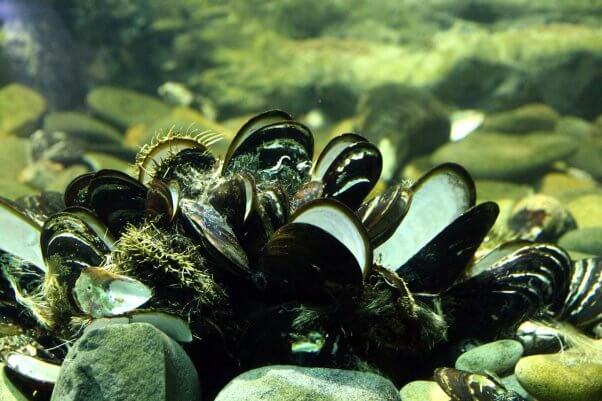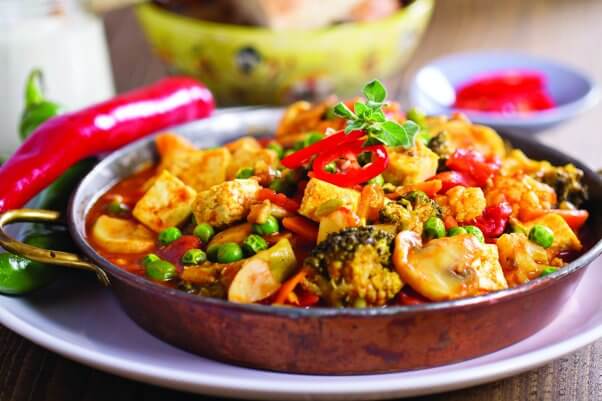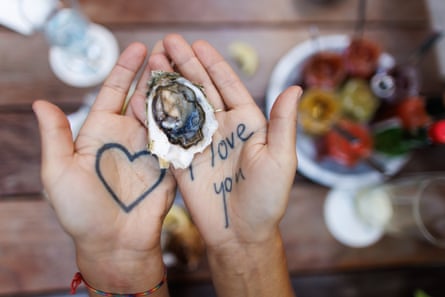From inquirer.com
Some vegetarians and vegans— bivalvegans — make an exception for eating oysters. Here's why
At the Washington, D.C., restaurant Oyster Oyster, chef Rob Rubba serves a tasting menu that’s entirely vegan, save for a single oyster course. Rubba, who eats “a vegetarian and more often plant-based diet,” says that oysters are central to the restaurant’s ethos, which is committed to preserving ecosystems. “Oysters have a long history here, and our waterways have been depleted of the benefits of oysters due to wild harvesting,” says Rubba, who was born in South Jersey and recently did a one-night pop-up at My Loup. “Therefore, we support oyster farmers who are environmentally in tune and working to restore our watershed.”
There are vegetarians and vegans, in fact, who eat oysters. Those amorphous grey molluscs look less like animals than most cars do, yet animals they are, with a teeny heart and two kidneys. So why the oyster exceptionalism?
“Ostrovegans” or “bivalvegans,” as they are sometimes known, tend to offer two main justifications for eating these animals, which typically also include mussels and clams: Oysters probably feel no pain, and oyster production and consumption is good for the environment, unlike, say, burgers. And they’ve been around for a while. In the 2010 Slate essay “Consider the Oyster,” author Christopher Cox argued that it’s OK for vegans to eat oysters because oyster farming and consumption have little negative impact on the ecosystem, and is minimally cruel to the molluscs themselves. “Raising animals for food 1) destroys the planet and 2) causes those animals to suffer,” he wrote. “But what if we could find an animal that thrived in a factory-farm cage, one that subsisted on nutrients plucked from the air and that was insensate to the slaughterhouse blade?”
For people whose vegetarianism is rooted in the reduction of suffering, oysters’ rudimentary nervous systems is proof enough that they do not suffer when killed — they don’t have a brain or a central nervous system, so it’s believed they don’t feel pain. Alicia Kennedy, an oyster-loving vegetarian and author of No Meat Required: The Cultural History & Culinary Future of Plant-Based Eating, considers oysters to essentially be “sea plants” for this reason, but she also eats them because of their social and environmental significance.
It should be noted that we can never 100% confirm the claim that oysters don’t feel pain because, as researchers put it, “the definition of pain includes a subjective component that may be impossible to gauge in animals quite different from humans, [so] firm conclusions about the possible existence of pain in molluscs may be unattainable.” But we do know that oysters filter water, help protect the shoreline, and are vital to so many ecosystems.
“They’re an important aspect of ecology wherever they are, cleaning up water and thus becoming important culturally,” says Kennedy. “The town I’m from on Long Island, Patchogue, was once a very significant oyster source. I like that it’s becoming that again: It provides a sense of heritage and place that few foods do.” She tries to order oysters whenever she’s in a place where they’re prevalent, not only because they’re delicious, but also because they’re “a good source of camaraderie to share and discuss,” she says. “Those things are more important to me as I get older than any ideological purity.”
For some vegetarians who eat oysters, the entire mollusc category is a go. Carly DeFeis, a 34-year-old woman who stopped eating land-based animals as a kid, eventually cut out fish as she got older to become a full-blown vegetarian, but she continued eating molluscs. “I don’t think of them as feeling pain in the same way,” she says. “I’m very much in the camp of minimizing harm to animals and the environment, but I also love good food and dining and cultural experiences.”

Oysters are perhaps the rare (if not only?) animal whose farming and consumption benefits the environment in a meaningful way. The cultivation of oysters – which eating farmed oysters encourages – helps restore depleted, overharvested wild oyster populations all while cleaning waterways. Therefore, a plant-based diet rooted in environmental concerns has more space for the little guys.
“A single oyster filters up to 50 gallons of water a day,” says Rubba. “Oyster reefs protect shorelines from storms and wave damage – something we are seeing more and more of. Those reefs house all kinds of symbiotic life that enriches the waters and restores balance.”
A vegan tasting menu with an oyster course doesn’t strike the chef as incongruous — rather, quite the opposite. “We like the grey area of sustainability as it creates room for growth and discussion.”
https://www.inquirer.com/food/why-vegetarians-vegans-eat-oysters-20240814.html




/cloudfront-us-east-1.images.arcpublishing.com/pmn/53ESLXSC5ZCRBKIMLBDXTKOSBI.jpg)

